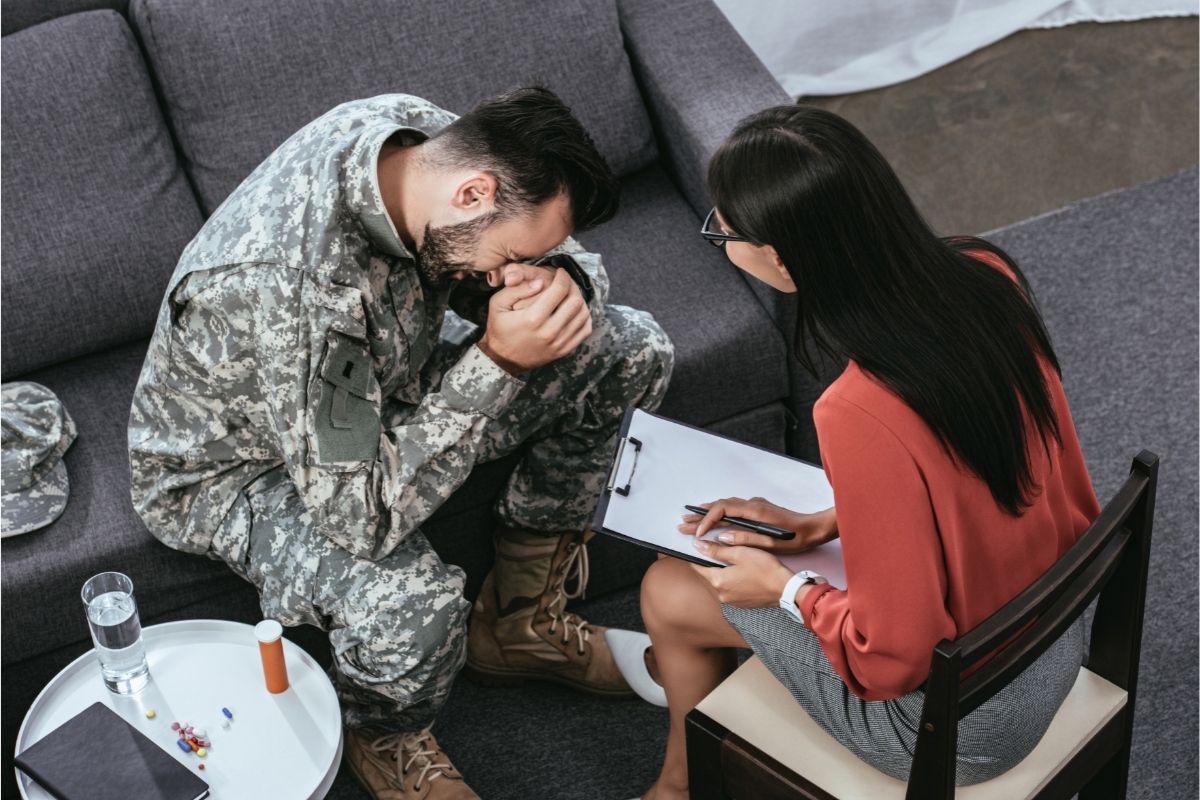What To Expect After EMDR Therapy

EMDR, or Eye Movement Desensitization and Reprocessing, is a type of therapy that helps people work through traumatic memories. It uses eye movements to stimulate the brain, which helps process emotional memories.
In recent years, EMDR has become more popular because it’s good at treating trauma-related issues like post-traumatic stress disorder (PTSD) and complex trauma. It can also help with other problems like depression, anxiety, phobias, eating disorders, and more.
How Does EMDR Work?
EMDR helps process traumatic experiences by having you mentally revisit them while also focusing on something else, using both verbal and non-verbal cues.
For example, if you’re dealing with a troubling memory from the past, you’ll use eye movements to shift your focus from the upsetting memory to something neutral or positive.
This technique helps therapists guide people to manage their thoughts and emotions, so these don’t take over their daily lives.
Who Can Benefit From EMDR Therapy?
Anyone who’s been through significant trauma can benefit from EMDR therapy. But it’s most often used with people who’ve been through multiple traumas.
This includes victims of child abuse, domestic violence, sexual assault, natural disasters, war, etc. To learn more about trauma and its effects, “How to Talk About Trauma in Therapy” can give you more insights.
People with PTSD often have flashbacks, nightmares, trouble sleeping, panic attacks, and/or are always on high alert. They might feel numb, detached, or emotionally shut down.
They might avoid certain situations, do self-destructive things, or even think about suicide.
People who’ve been through severe childhood trauma might struggle with low self-esteem, substance abuse, thoughts of suicide, and/or depression.
Those who’ve experienced chronic pain or physical injuries might have trouble sleeping or concentrating.
Those diagnosed with borderline personality disorder might have frequent mood swings, act impulsively, and have unstable relationships.
Many people who experienced early neglect or abuse might develop attachment issues.
Why Should I Choose EMDR Treatment?
There are several reasons to choose EMDR therapy. First, it’s one of the few treatments proven to effectively treat trauma-related disorders.
Second, it’s really good at helping you recover from trauma. Third, it’s relatively easy to learn. Fourth, it’s safe and doesn’t involve any drugs or surgery. Finally, each session takes less than an hour.
How Will I Feel After EMDR Treatment?
You might feel anxious before each session starts. But once you begin the treatment, you’ll likely start feeling calmer and more relaxed.
During sessions, you might notice your emotions changing. For instance, if you were feeling negative emotions before, you might become angry or sad.
If you were feeling calm, you might suddenly become upset. The therapist will work with you to adjust your emotional state during the session.
After the session ends, you might feel tired. It’s normal to feel exhausted after finishing a therapy session.
Will My Trauma Be Removed During EMDR Therapy?
EMDR works by helping you process your traumatic memories. It won’t remove the trauma itself. But it helps you cope better with the trauma and stop it from affecting your daily life. For more on dealing with the aftermath of trauma, “How to Heal Deep Emotional Wounds” might be helpful.
Can EMDR Help Me With Other Problems?
EMDR is designed to be used on its own. But it can also be combined with other therapies to address additional problems.
For example, it can be used along with CBT (cognitive behavioral therapy) to help you manage anxiety. If you’re looking into options for anxiety, “Can You Go to the Hospital for Anxiety?” provides useful information.
Are There Any Side Effects Associated With EMDR?
Like all forms of psychotherapy, there are some potential side effects with EMDR. These might include:
– Headaches
– Nausea
– Dizziness
– Feeling faint
– Lightheadedness
– Tingling sensations
– Muscle spasms
– Sweating
– Increased heart rate
– Shaking
– Blurred vision
– Difficulty breathing
– Changes in blood pressure
If you experience any of these symptoms, tell your therapist right away so they can make adjustments to keep you comfortable during the treatment.
How To Practice Self Care After EMDR
It’s important to take care of yourself after EMDR therapy. This includes eating healthy foods, getting enough sleep, exercising regularly, taking breaks when needed, and avoiding alcohol and drugs.
How Long Does EMDR Take?
The time needed to complete EMDR varies for each person. Usually, most people need between 10–20 sessions to fully recover.
Can I Have EMDR Treatment For Addiction?
Yes! EMDR has been shown to be very effective at treating addiction. In fact, many therapists use EMDR as part of their approach to treating substance abuse.
Do You Need A Referral From Another Therapist?
No. Many therapists offer EMDR without requiring referrals.
How Long Does A Therapist Need To Train In Order To Practice EMDR?
Therapists who have completed training in EMDR typically get certified through the American EMDR Association. Certification requires about 1 year of study and practice.
What Conditions Can EMDR treat?
Anyone who has experienced trauma can benefit from EMDR. Although anyone can receive this form of therapy, it’s typically recommended for those suffering from PTSD, depression, anxiety, phobias, OCD, and/or relationship issues.
Wrapping It Up
To sum up, after experiencing trauma, EMDR treatment can help reduce symptoms of PTSD or CPTSD.
After EMDR therapy, you might feel like a new person. You might even feel like you’ve been given a second chance at life.
However, EMDR therapy can be a tough process because it brings up memories you’ve been burying for a long time. So, it’s important to get professional support while doing EMDR therapy and to surround yourself with a strong support network.

Author: Michelle Landeros, LMFT
Michelle Landeros is a Licensed Marriage Family Therapist (LMFT). She is passionate about helping individuals, couples and families thrive.







